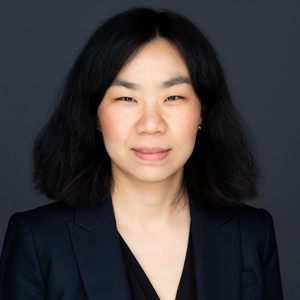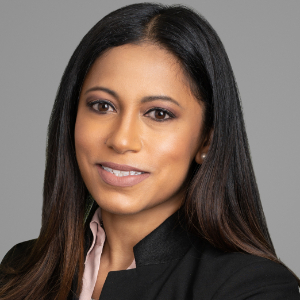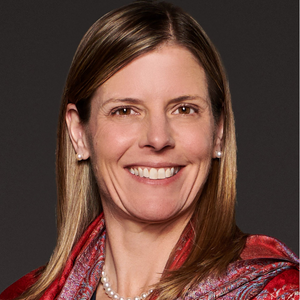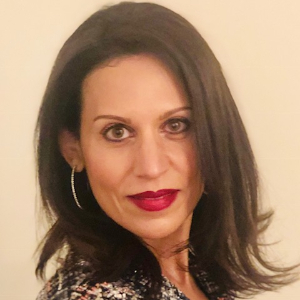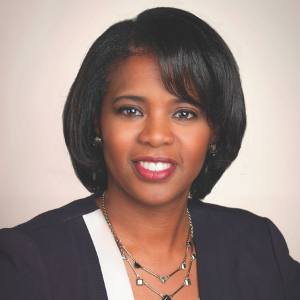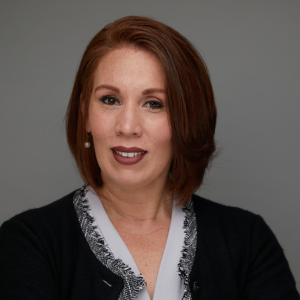Loretta Franks: VP, Chief Data & Analytics Officer at Kellogg Company
 “If you stay near the same dominion, you always have that depth, but if you move functions, you gain great leadership breadth. That comes with a lot of positives but it can leave a gap in a space you relied on,” says Loretta Franks to her broader, non-tech multidisciplinary background. “I love diving in and helping people, but now that has to happen in a different way. I must rely more on my leadership team and their depth of experience. That’s the shift I have taken from a leadership development perspective.”
“If you stay near the same dominion, you always have that depth, but if you move functions, you gain great leadership breadth. That comes with a lot of positives but it can leave a gap in a space you relied on,” says Loretta Franks to her broader, non-tech multidisciplinary background. “I love diving in and helping people, but now that has to happen in a different way. I must rely more on my leadership team and their depth of experience. That’s the shift I have taken from a leadership development perspective.”
Drawn Towards Change and Transformation
After traveling for a year after university, Franks joined Kellogg. Her trajectory to date is an exploration of interdisciplinary skills, each one often interweaving with and building upon the last. Beginning as a Financial Analyst, Franks has gone through 13 positions in her almost 16 years at Kellogg – from finance roles to project management roles, to change programs, to divestitures/acquisitions, to enterprise-wide transformation programs and now to data and analytics.
“I love the end-to-end view of business processes, which you get from large-scale projects and program transformation initiatives,” says Franks. “Finance was an amazing foundation for any role. I’m a big believer that understanding the fundamentals of a P&L is critical in whatever role you are in, but once I got a taste for large transformation roles and driving positive change, I got addicted!”
Her move from Regional European roles to Global roles in 2017 opened her network further and ultimately launched her into Global Business Services, then to lead the Next-Generation Analytics Global Program, then towards her current role.
“My friends would describe me as curious and a bit of a fidget! I have been fortunate to experience many functions and the learning opportunity is always much more important to me than the actual function itself that I report into. I like to blur the lines and work across the business. I enjoy variety; I don’t like the same day-to-day routine,” muses Franks. “I am energized most by strategy development, innovation and ideation, thinking of new ideas and solving problems. In any transformation-based initiative, you are trying to fundamentally change something for the better and add incremental value. That really motivates me.”
She’s felt at home in Kellogg culture which matches her own values as people-centered and solution-focused. “I take pleasure in building new relationships, mentoring and coaching people; whether it be through career matters, personal development challenges or new opportunities.”
The Power of Complementing Tech Expertise
Franks is often asked how she has got to her job without a background in tech.
“What we’ve collectively realized, as a team, is the power of diverse capabilities and experiences coming together is incredibly powerful. You need the technical discipline and expertise in the team, no doubt – the data scientists, the engineers – who have risen in this space,” she says. “But you also need people who can be great storytellers, who can help translate problems into business and technical requirements, who can lead large teams of diverse capabilities and cultures. You need to have customer centricity and think about the user experience as well as issues such as process, adoption, change management, talent development and engagement.” She believes the combination of multiple capabilities and experiences in Data & Analytics is the big unlock end-to-end.
She has also found that many of her tech talent often don’t want to be muddled in business analysis, prioritization debates, investment choices or decision-making, so allowing them to focus on what they really love to do, which is working with technology, data and being innovative is a huge engagement lever.
Franks would say her natural curiosity and her problem-solving mind, “irrelevant of the swim lane I am in,” has helped navigate between disciplines.
“I think people see me as authentic and well-intended,” reflects Franks. “We are a regionally driven company and so for me it’s all about how we best enable our regions and functions as one team. In the end it’s all about creating value for our shareholders and end consumers.”
Back in finance as a leader, Franks could roll up her sleeves and get into the details when it was required due to her experience and qualifications coming up through the lower levels. As she’s taken on senior leadership roles across new functions, she’s had to adjust and identify new ways of providing support and getting enough detail from her leadership team to make decisions.
Building Confidence and Showing Vulnerability
“I have become much more comfortable with showing vulnerability as a leader over the last 12-24 months,” says Franks. “And the more I do it, the more I realize the positive impact it has on my team and myself.”
In a recent in-person feedback team-development session, she repeatedly heard that the more vulnerability she shows, the more she builds trust with her leadership team.
“It made me reflect on the fact that I don’t have to be this unbreakable leader for the sake of my team. Talking about some of my insecurities, gaps in knowledge or concerns and asking for their support is a huge unlock for our team’s performance and overall connection,” says Franks. “Trying to be constantly brilliant for them can put an unintended pressure on them to also not show cracks. It was eye-opening to see that my positive intent was actually creating unintended negative impacts.”
Franks encourages women to focus on confidence-building and even at times being selfish.
“Confidence is so important, yet sometimes ‘confidence’ can be felt by women as a negative because we don’t want to come across arrogant or as a know-it-all. We need to take these words that have negative associations and switch them into positives,” says Franks. “There is also a huge amount of negative connotation around the phrase ‘being selfish.’ But it is so important that at times you put yourself first. Prioritize your own development, personal learning journey, self-care, and look to make choices that help you, not just other people all the time.”
She continues, “I think it’s breaking those associations in our head that suggest ‘If I’m confident…I’m perceived as arrogant’ or ‘If I’m selfish… I’m a mean person.’ It can feel very uncomfortable, but it is these simple things that can make a massive difference and it is not about changing your values, just your priorities.”
Women in STEM – A Leap Beyond Sight
As Franks has moved from gender-balanced Finance and GBS functions in Kellogg towards an IT leadership role working with many tech partners and vendors externally, she’s seen the difference in representation. She is an advocate for gender parity and passionate about getting more women into STEM and girls into STEM subjects, looking at gender equity talent pipelines and career development at Kellogg, and working with partners and vendors for their support as well across the industry.
“As a big global brand, we have the opportunity to choose who we work with, we can leverage that position to lead the conversation and drive positive change in the industry,” says Franks. “Our partners also have their own fantastic programs and priorities around gender equity and women in STEM initiatives so working together, we can really start to shift the dial.”
After taking the opportunity to speak about women in STEM and gender equity across Data & Analytics, amidst a large technology conference, she was inspired by the number of men who waited after to speak with her about inspiring their own daughters.
“I think it surprised them because I raised this topic as a bolt on to the main agenda. It was a proud moment to see this big queue to talk more about getting women into D&A and Technology,” says Franks. “I think the more that we can use platforms like that to talk about it, the better.”
Franks partners with different organizations to reach younger girls about opportunities available to them in STEM. Having role models is essential to inspire and motivate others, Franks emphasizes. “If you can see it, you can be it”.
“When I was in school, CDAOs did not exist as a career choice and there are many more roles that will exist in ten years’ time that do not exist today,” she iterates. “It is important that we change the narrative and mindset of following a linear pre-defined journey and instead give both girls and women the confidence to trust and keep moving within an area of their passion, without having to plan the future out in too much detail. The world is changing fast and knowing the opportunities are open to us all, irrelevant of gender, is what is important.”
Speaking of the next generation, Franks and her partner have two children, seven and five years old. As a family person and former Lacrosse player, she watches a lot of sports when she’s not launching into yet another unexplored territory.
By Aimee Hansen

